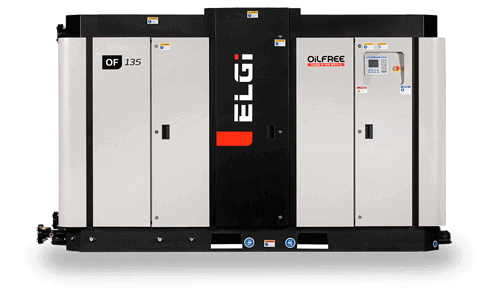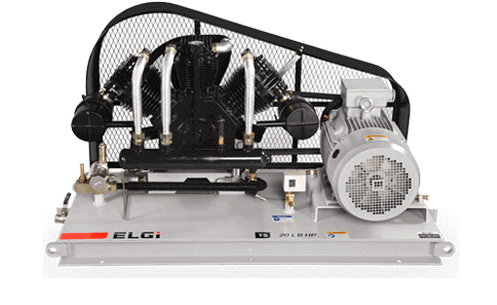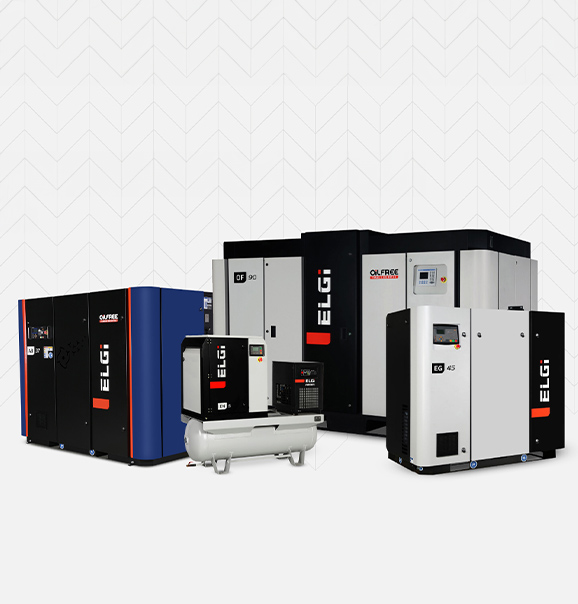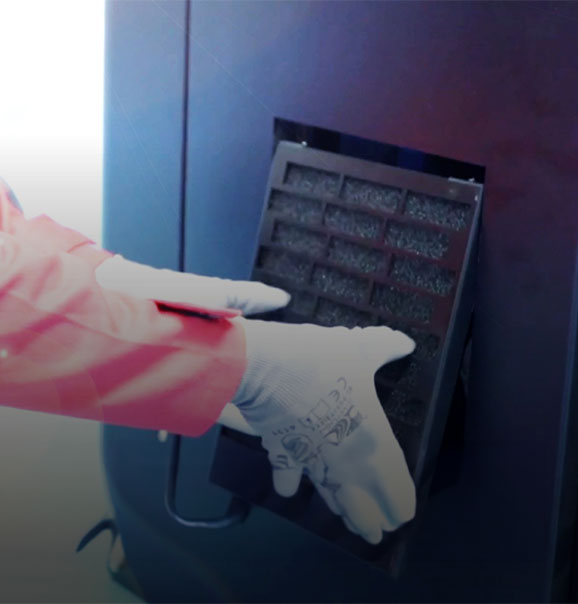STANDARDISED COMPRESSED AIR
ELGi's electric oil-free air compressors ensure unparalleled air quality, adhering to ISO8573-Class 7 compliance norms. Our air compressors guarantee zero traces of microbial contaminants, meeting the IS:10500:202 certification for water quality standards. This ensures seamless manufacturing of medicines, capsules, and other consumable products with uncompromised purity.
QUALITY BY DESIGN
At ELGi, our Quality-by-design approach is meticulously implemented to prevent quality lapses and mitigate risks in drug manufacturing industries. We employ stringent design measures to prevent air contamination, ensuring the highest standards of purity in delivered air.
BETTER RELIABILITY WITH LOW MAINTENANCE COST
ELGi's electric oil-free air compressors feature efficient rotors, delivering best-in-class performance, single-stage operation, and low operation speeds. This not only ensures low maintenance costs but also leads to significant energy savings. With ELGi compressors, you can enjoy better reliability and peace of mind without compromising performance.
APPLICATIONS OF COMPRESSED AIR IN THE PHARMACEUTICAL INDUSTRY
Compressed air is crucial in the pharmaceutical sector, serving diverse applications categorised into Process Air and Direct Contact.
PROCESS AIR APPLICATION
Process air applications utilise compressed air for specific kinetic activities. For instance, in pill production, uncoated tablets undergo coating in large drums where compressed air propels the drum's rotation. Additionally, compressed air aids in the conveyance process.
DIRECT CONTACT APPLICATION
Direct contact applications involve compressed air directly interacting with pharmaceutical processes, necessitating the utmost air quality. For instance, compressed air is utilised in tablet coating to maintain its structural integrity. Any impurities in the air can compromise product integrity or lead to contamination. It is also pivotal in jet milling, where compressed air or nitrogen facilitates particle reduction through collisions and classification.
Compressed air plays a vital role in bottle cleaning, removing dust and particles before filling containers safely. This system effectively eliminates loose contaminants accumulated during shipping or storage. Containers are rinsed with ionised air, neutralising static charge, and rinsing heads utilise compressed air blasts for cleaning. Moreover, membrane technology with nitrogen generators utilises compressed air to permeate impurities, ensuring high purity nitrogen gas emerges selectively.
OIL-FREE AIR COMPRESSORS IN THE PHARMACEUTICAL INDUSTRY
Oil-free air compressors are indispensable for manufacturing medicines and related products in the pharmaceutical industry. With increased scrutiny from regulatory bodies like the FDA and strict warnings regarding toxic impurities, maintaining the highest air quality standards is paramount. Disruptions in air supply can result in significant production losses and tarnish the manufacturer's reputation due to product contamination.
There is a growing demand for compressed air devoid of oil and other contaminants to ensure clean and pure air during various manufacturing processes such as tablet coating & drying, bottle cleaning, nitrogen separation, and more. Compressors must undergo specialised air treatments and adhere to industry regulations to eliminate debris, particulates, and oils, achieving high air purity levels. The allowable oil content in compressed air varies based on its application, following ISO8573-Class 7 compliance norms which classify air quality from Class 0 to Class 4 based on oil content.
Oil-free air compressors in the pharmaceutical industry find applications across diverse processes, including conveying capsules, packaging, and providing clean air for factory operations. These compressors play a crucial role in ensuring production remains free from contamination within automated production lines, consequently reducing rejection rates in packaging applications.

; ?>/images/mobile/nav-down-arrow.png)




